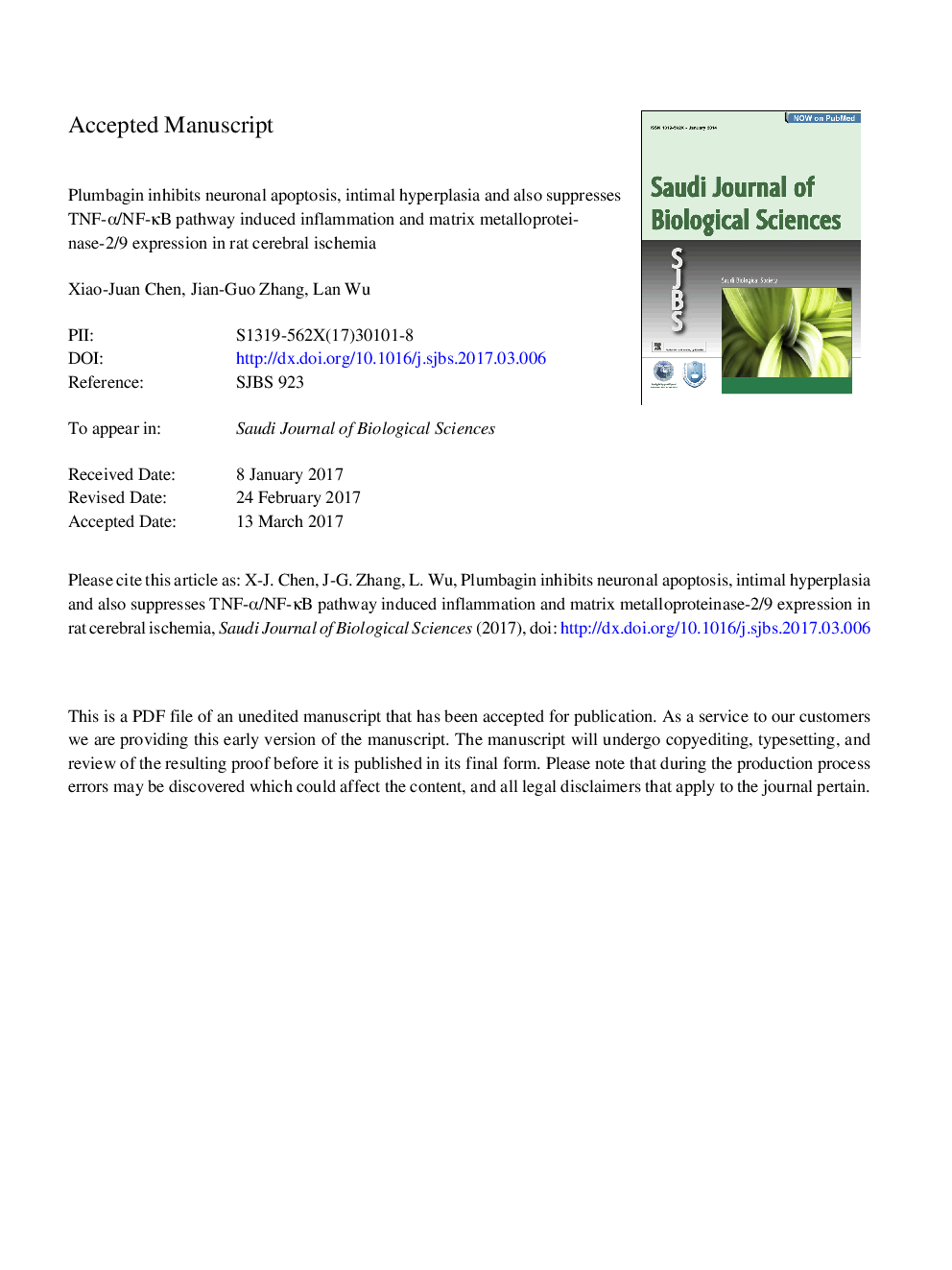| Article ID | Journal | Published Year | Pages | File Type |
|---|---|---|---|---|
| 8959264 | Saudi Journal of Biological Sciences | 2018 | 28 Pages |
Abstract
Cerebral ischemic damage and infarction are well documented in stroke, which is presenting a foremost health concern globally with very high mortality and morbidity rates. Mechanisms that are associated with excitotoxicity, inflammation and oxidative stress are found to be critically involved in ischemic damage. Adverse effects of current therapies are imposing the need in development of neuroprotective agents that are very effective. To explore this we experimentally induced ischemic brain injury and investigated the effects of plumbagin. Induction of cerebral infarction and ischemia-reperfusion (I/R) was done by middle cerebral artery occlusion (MCAO) in Sprague-Dawley rats. Plumbagin (50, 100 or 200 mg/kg b.wt) was intragastrically administered for 9 days before ischemia induction and an hour prior on the day of ischemic insult. Plumbagin treatment attenuated pulmonary edema, neuronal apoptosis and reduced cerebral infarct volume. Cleaved caspase-3 and apoptotic cascade protein expressions were regulated. Overproduction of pro-inflammatory cytokines (TNF-α, IL-1β and IL-6) and nitric oxide (NO) following I/R were reduced. Prior plumbagin administration had down-regulated NF-κB signalling and MMP-2 and MMP-9 expression. Overall, the results reveal the potent neuroprotective efficacy of plumbagin against I/R-induced brain injury via effectively modulating apoptotic pathways, MMPs and neuro-inflammatory cascades.
Keywords
Related Topics
Life Sciences
Environmental Science
Ecology
Authors
Xiao-Juan Chen, Jian-Guo Zhang, Lan Wu,
